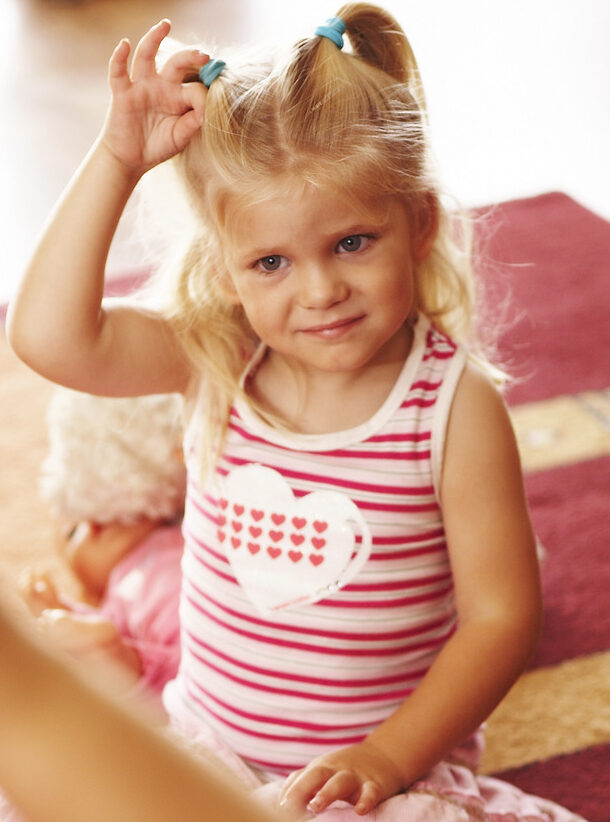For more than 30 years hey dee ho has shared its unique early learning program for children aged from birth to five years of age with the early childhood education and care (ECEC) sector and broader community, bringing a range of play based activities which address developmental needs and cognitive and physical development.
Making sure the programs are inclusive, not only in terms of being accessible for children from the very early stages of life through to leaving early childhood for school, but also in terms of being accessible for children with additional needs is a passion of hey dee ho co-owner Jenny Wilkinson, who purchased the business in 1997.
That’s why each of the four hey dee ho programs – hey dee ho Music, Fun – Key Yoga, hey dee ho active 8 and The Fiction Factory -actively seek out ways to foster inclusivity, with hey dee ho music, in particular, incorporating an AUSLAN component.
Inclusion through AUSLAN
AUSLAN is the majority sign language of the Australian Deaf community. The term Auslan is a portmanteau of “Australian Sign Language”, coined by Trevor Johnston in the 1980s, although the language itself is much older.
“There’s a lot of research which shows the value of using signing for both hearing and non hearing children,” Ms Wilkinson said.
While there is a misconception that hearing children who learn to sign as a form of communication will have delayed speech, the actuality is that children who sign before they can speak have better expressive and receptive language skills than those not exposed to sign.
The multisensorial and gross motor elements of incorporating sign into a music based program supports children to consolidate their learning, with research showing a relationship between motor skills and language aquisition.
Many children who are on the autism spectrum struggle with communication, and have a component of both sign and voice to support them to communicate. For Mums like MJ, having access to an Australian program which is suitable for early learners, which is available to view from home and has a participation element while attending early learning, AND which incorporates AUSLAN, rather than American Sign Language (ASL) is invaluable.
Having hey dee ho songs, complete with AUSLAN signs program available on the hey dee ho YouTube channel has helped to build language learning for MJ and her son, and has allowed her to join in with his learning.
“I’m a Mum of a son with autism, who is non verbal,” she shared. “I’ve been watching the YouTube song channels and couldn’t find many videos with AUSLAN or key word signing. I really appreciate the hey dee ho songs with key word signs so I can sing and sign along with my son.”
Dedicated early childhood offerings
hey dee ho educational services and programs have been specially designed to bring out a different aspect of children’s learning, and to support early childhood services to provide a unique aspect to their program which sets them apart from other providers.
Compliant with the National Quality Standard and the Early Years Learning Framework, hey dee ho programs, which can be run onsite in early childhood services, provide educator support materials which can be used to support reflective practice and continuous improvement.
At Dunbarton Drive Children’s Centre, having hey dee ho music operating a weekly program for three and four year old kinder and prekinder children has been “a weekly highlight” and one which they highly recommend to others.
“The program is educational, stimulating, captivating, age appropriate, and runs to a standard of excellence,” a spokesperson noted.
For Ashmore Community Children’s Centre, having hey dee ho visit the service has been a boon for parents, who have shared “very positive feedback” since the program began, along with educators and children.
“The music, props and interactive experiences all contribute to providing an interesting and engaging experience,” a service representative said.
For more educator testimonials, check out the video here.
This article was originally published by The Sector.


